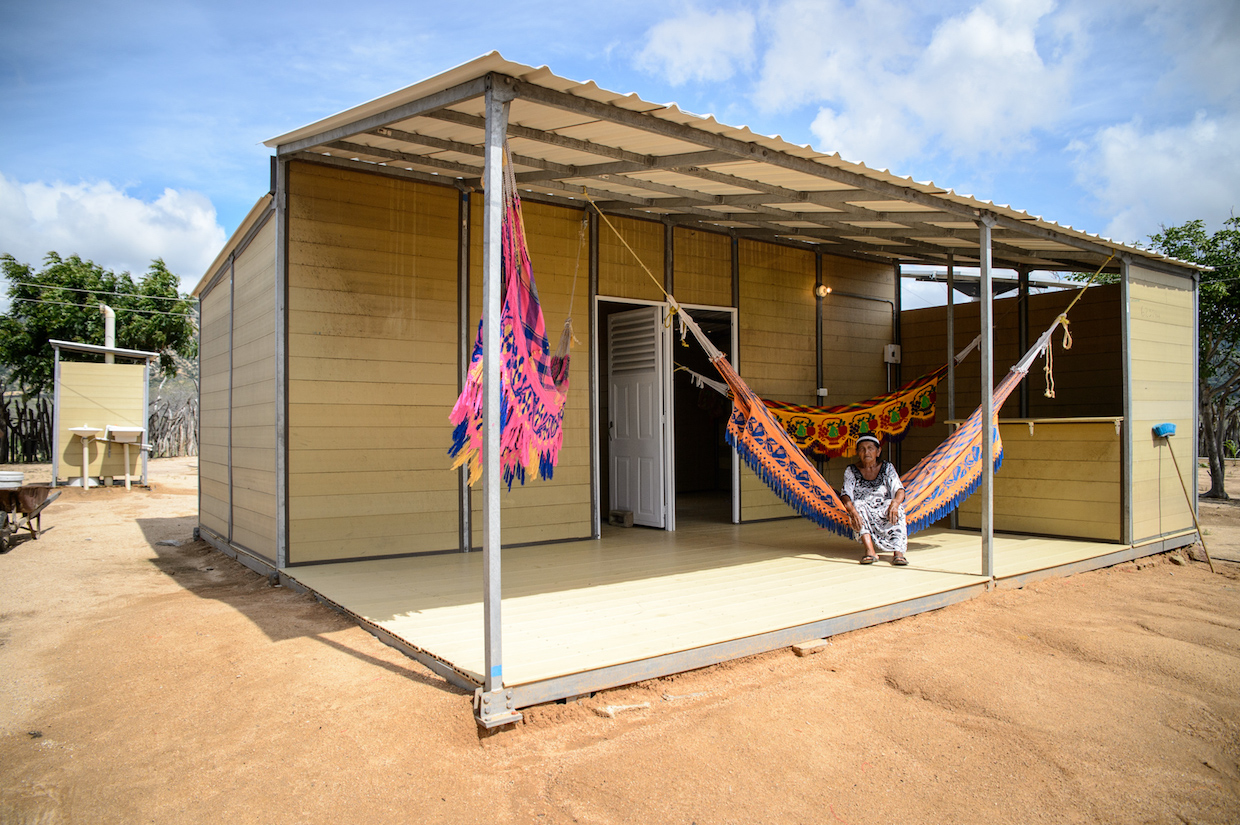
A house built with Woodpecker coffee lumber as part of a climate adaptation housing program. All images courtesy of Woodpecker SAS.
From the third-largest coffee-producing country in the world, a company called Woodpecker is bringing new life to a coffee byproduct while providing sustainable building materials.
The Bogotá, Colombia-based company is combining a recycled-plastic polymer with coffee parchment, or “pergamino,” the papery shell removed from the surface of the coffee seed in the midst of post-harvest processing.
The ground coffee husk and plastic are extruded by Woodpecker to create a relatively lightweight and strong construction material that the company is calling Woodpecker WPC (wood plastic composite).
The coffee-plastic lumber is fireproof, durable and insect-resistant, according to Woodpecker, which buys husk in bulk from coffee mills located in various regions of Colombia, where post-harvest processing occurs in waves at different times of the year.
“[Coffee parchment] was a non-useful material. The same happened with the polymer we use. It used to be thrown away in the landfills, creating pollution,” Woodpecker CEO Alejandro Franco recently told Daily Coffee News. “Since our beginning, we chose to use recycled materials in our WPC to make it green and eco-friendly. Our product and process are helping to preserve the environment.”
One of Franco’s motivations in creating the company was an urgent need to build reliable, long-lasting homes, schools, medical facilities and other buildings in rural areas where traditional materials such as bricks, cement and concrete are difficult to supply due to challenging infrastructure.
Woodpecker started developing its coffee-plastic lumber roughly a decade ago in association with Universidad de los Andes, looking for materials that could be sturdy enough for building construction yet light enough to be transported by boat, helicopter or the backs of mules.
“We tested different natural fibers including rice powder, grass, pine sawdust, oil palm fiber, coconut fiber,” said Franco. “The same for polymers polyethylene, polypropylene and rigid PVC. Coffee husk was selected because it is stronger and drier compared [to] the other fibers. Also, it is easy to be shredded and milled to make it in powder.”
Coffee was of course also attractive for its local abundance, and for its economic and cultural significance.
“It is widely available in our country Colombia, and we are famous worldwide for coffee,” said Franco. “It is a well-known ‘brand.’ We wanted to stamp our constructions with this coffee seal.”
In a Bogotá factory, Woodpecker extrudes the lumber into an interlocking shape, allowing for easy assembly either by hand or with simple tools The WPC comes finished in a selection of colors.
Woodpecker is selling the material wholesale in Colombia and to international customers in full shipping containers. For as little as US$4,500, Woodpecker also sells prefab houses that can be shipped for on-site assembly. A 23-square-meter (247-square-foot) “tiny home” that sells for about $6,000 USD, consisting of a steel frame and Woodpecker WPC walls, floors and front decking, amounts to roughly 2000 kilograms (4,400 pounds), including approximately 1,000 kilograms of coffee material.
“Besides exports, in Colombia there is a huge necessity for social infrastructure — housing, classrooms, sanitary baths — especially in rural places where traditional construction systems cannot go,” said Franco. “This housing market requires more than 20,000 houses per year. The goal is to satisfy at least a great part of it.”
Howard Bryman
Howard Bryman is the associate editor of Daily Coffee News by Roast Magazine. He is based in Portland, Oregon.
Comment
3 Comments
Comments are closed.



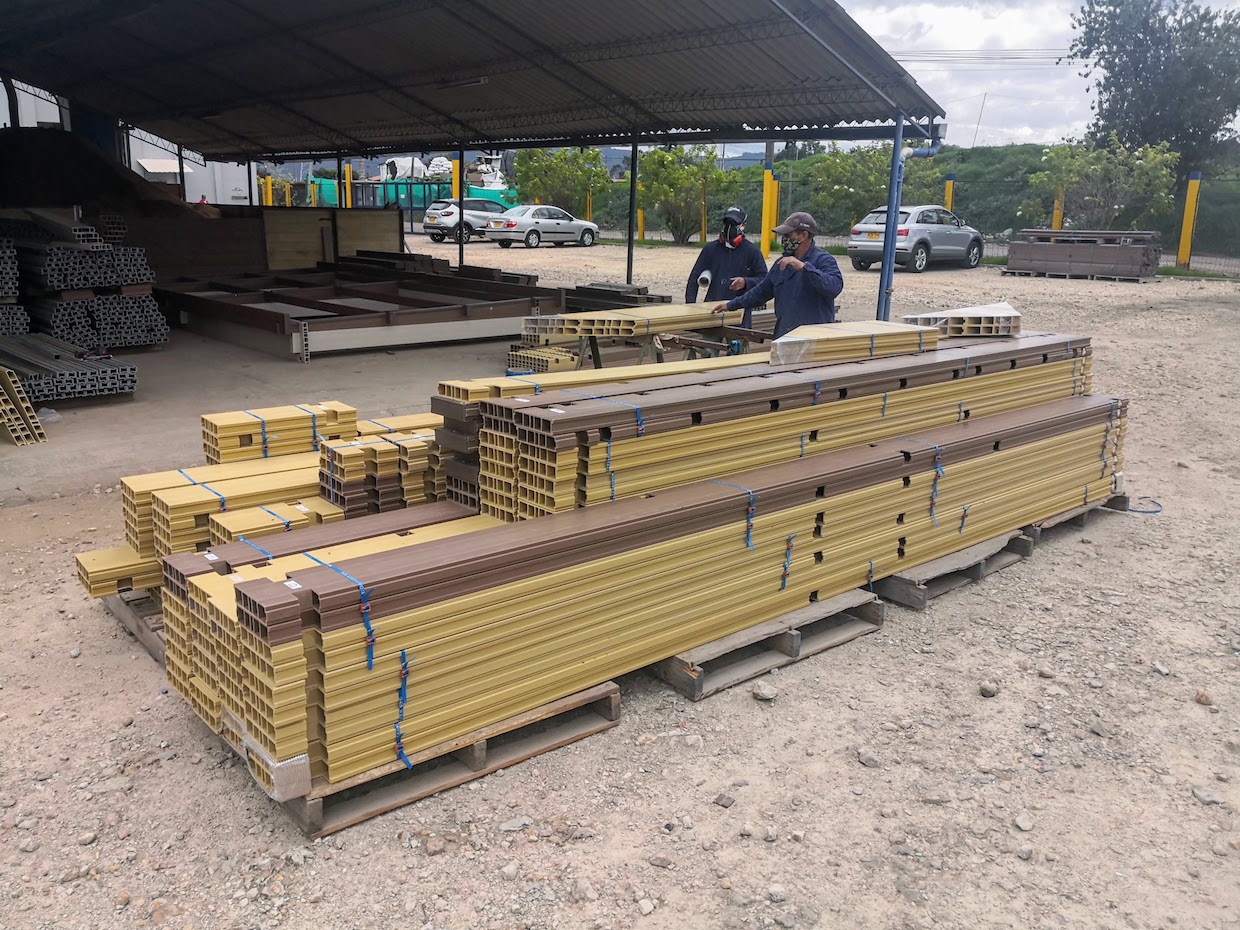
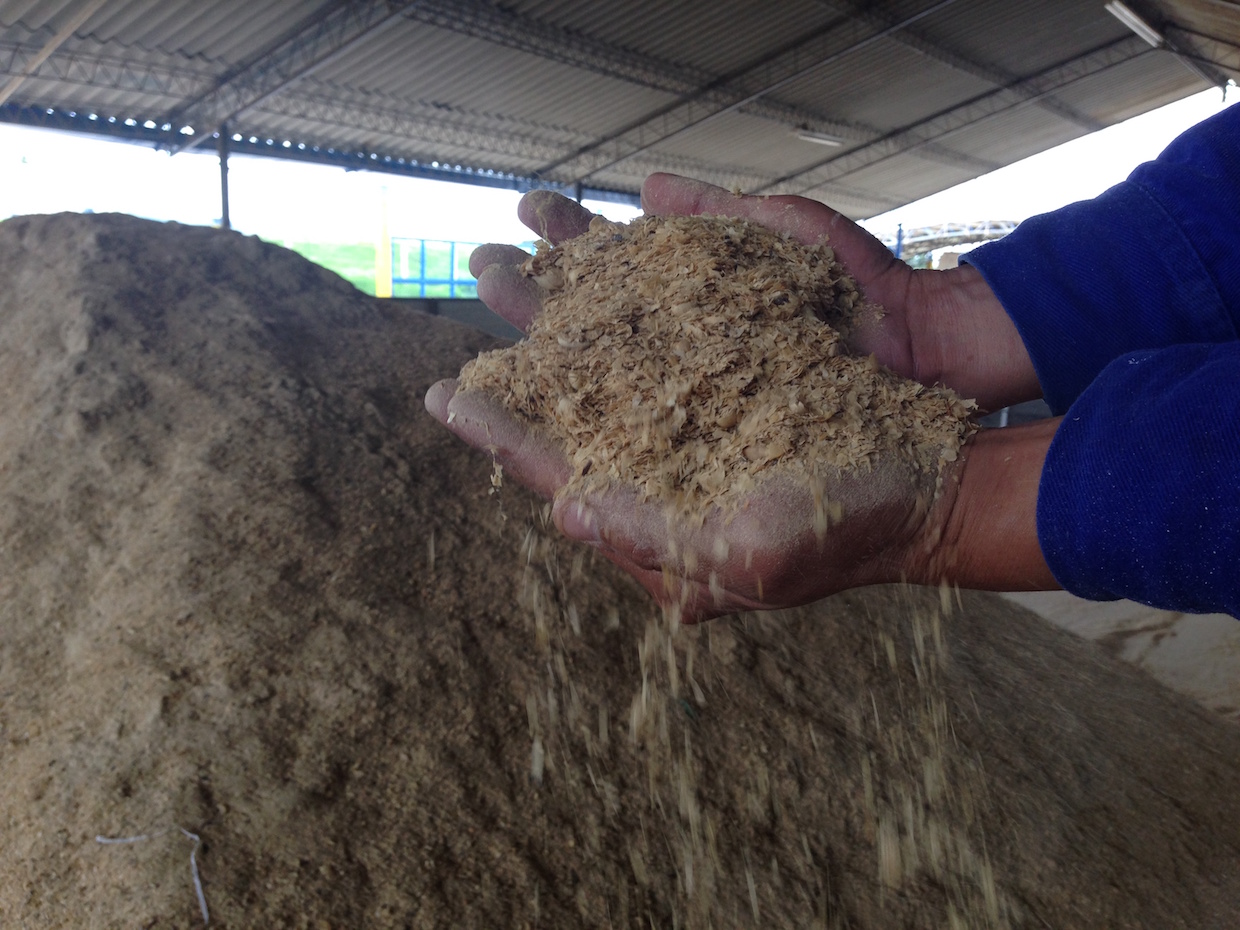
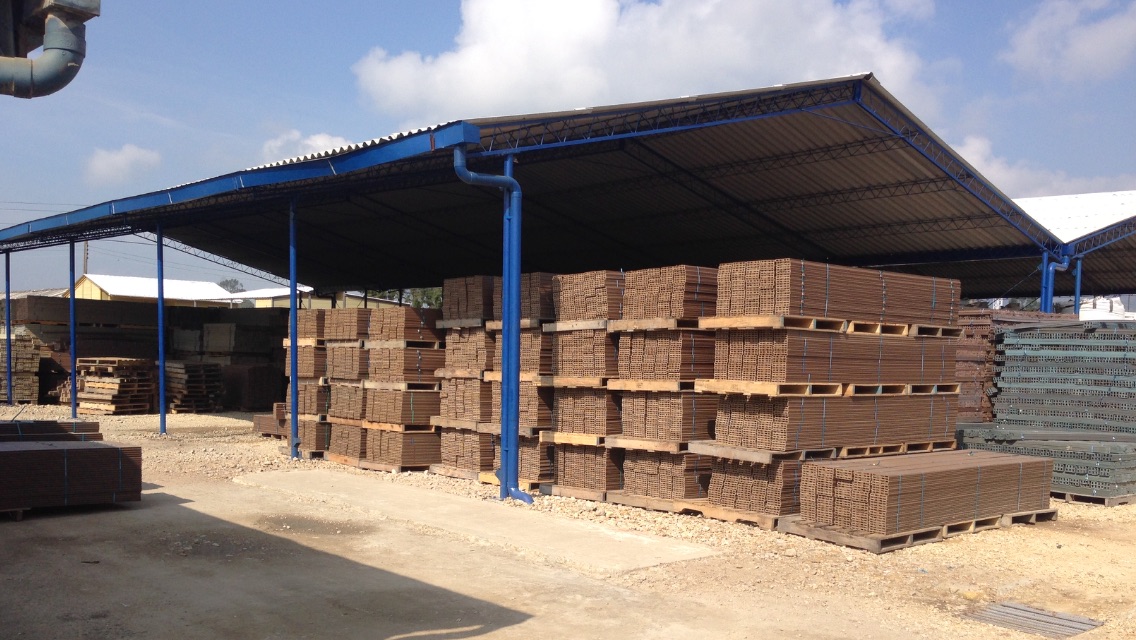
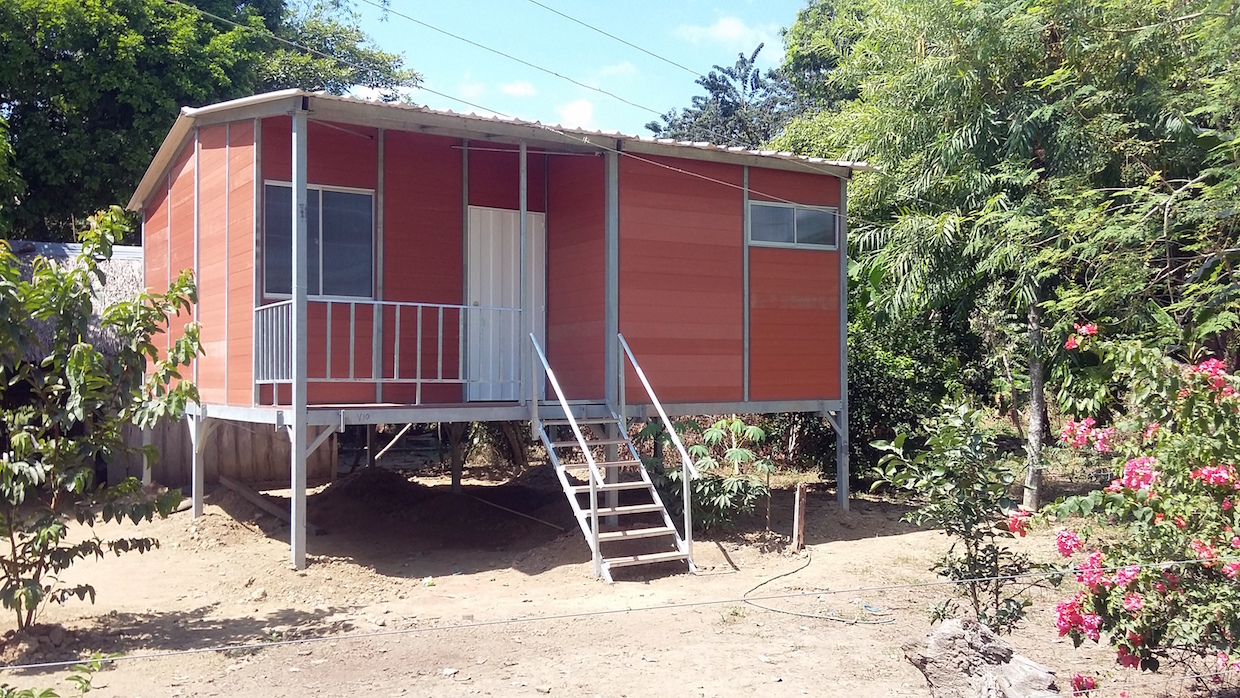
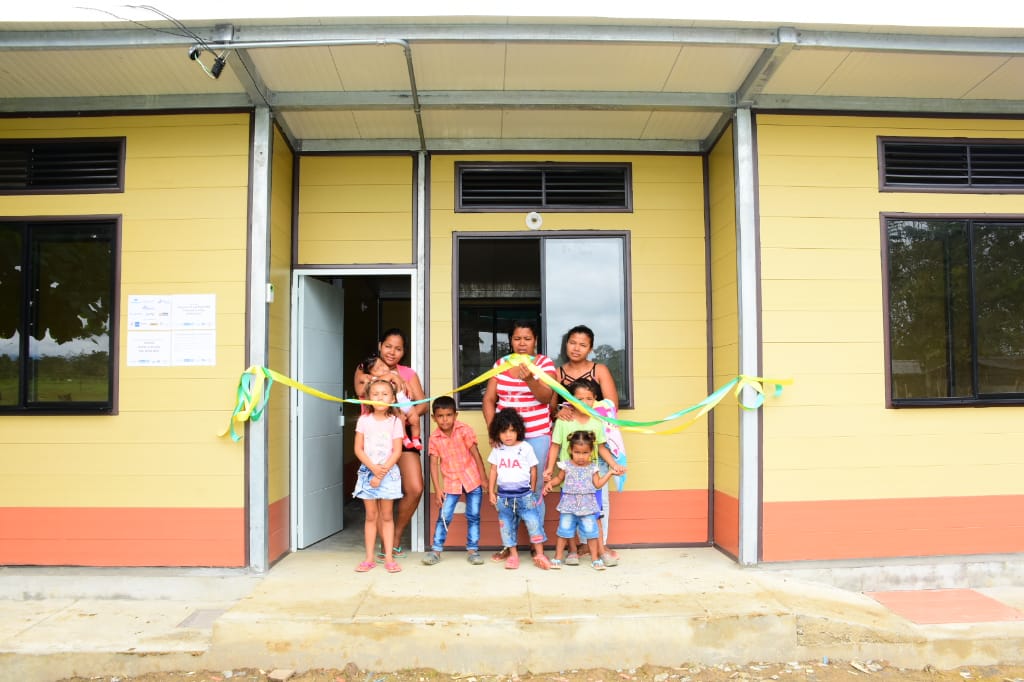



Wow! We’ve come a long way, what a great idea and application. Congrats to Woodpecker. My original reaction was, hey, that stuff is needed for compost and biomass, but there is so much of it out there, so well done!
Wow! I love this!
Wow, what an innovative approach. Seems like a win for everyone!
We at Medspresso are huge coffee lovers and we love reading about the consistent innovations in this space. https://medspresso.co/
Thanks for sharing! 🙂